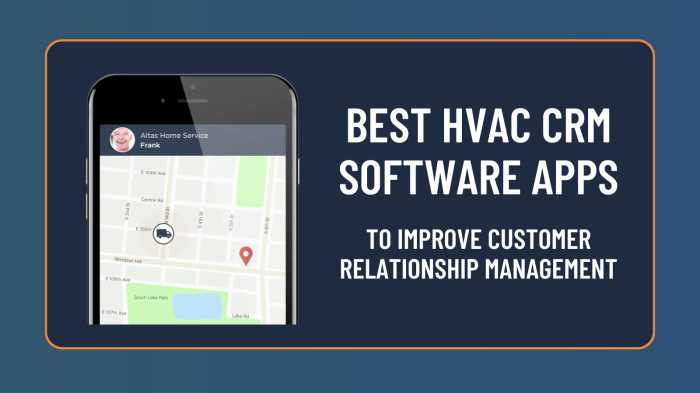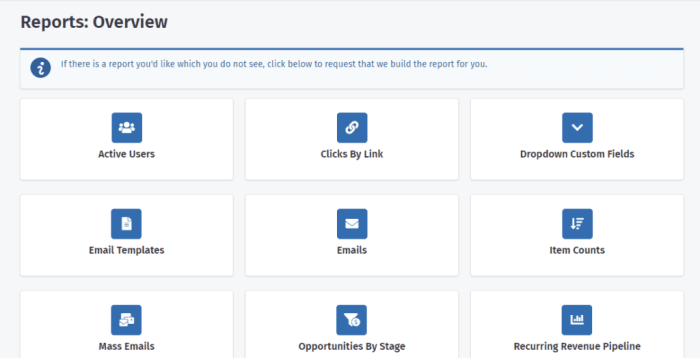Crm software for hvac – The HVAC industry, characterized by its intricate service schedules, diverse customer needs, and competitive landscape, necessitates efficient management strategies. Customer Relationship Management (CRM) software emerges as a critical tool for streamlining operations, boosting customer satisfaction, and ultimately, driving profitability. This comprehensive guide explores the vital role of CRM software in the HVAC sector, examining its features, benefits, and considerations for successful implementation.

Source: ctfassets.net
Understanding the HVAC Industry’s Need for CRM
HVAC businesses, whether large corporations or small family-run operations, face common challenges: managing numerous service appointments, tracking equipment maintenance, handling customer inquiries efficiently, and fostering long-term customer relationships. Traditional methods, like spreadsheets and paper-based systems, often prove inadequate in managing these complexities. They lead to missed appointments, duplicated efforts, inefficient communication, and ultimately, lost revenue. This is where a robust HVAC CRM system steps in to provide a centralized, streamlined solution.

Source: vipecloud.com
Key Challenges Addressed by HVAC CRM Software:
- Scheduling and Dispatching: Optimizing technician routes, minimizing travel time, and ensuring timely service appointments.
- Customer Communication: Efficiently managing customer interactions through various channels (email, phone, text).
- Inventory Management: Tracking parts, supplies, and equipment to prevent stockouts and improve service efficiency.
- Marketing and Sales: Targeting potential customers, nurturing leads, and driving sales through targeted campaigns.
- Reporting and Analytics: Gaining insights into business performance, identifying areas for improvement, and making data-driven decisions.
- Technician Management: Assigning jobs, tracking performance, and managing technician schedules effectively.
Essential Features of HVAC CRM Software
A successful HVAC CRM system should offer a range of features tailored to the specific needs of the industry. These features often go beyond basic contact management and encompass specialized functionalities.
Core Features:
- Contact Management: Centralized database for storing customer information, including service history, equipment details, and communication logs.
- Calendar and Scheduling: Intuitive scheduling tools for managing appointments, optimizing technician routes, and minimizing conflicts.
- Dispatching: Efficiently assigning jobs to technicians based on location, availability, and expertise.
- Automated Communication: Sending automated reminders, appointment confirmations, and follow-up messages.
- Service History Tracking: Maintaining detailed records of past services, repairs, and maintenance performed on each customer’s equipment.
- Inventory Management: Tracking parts, supplies, and equipment levels to ensure timely service and prevent stockouts.
- Reporting and Analytics: Generating reports on key performance indicators (KPIs), such as service calls, revenue, customer satisfaction, and technician productivity.
- Integration with other systems: Seamless integration with accounting software, mapping services (like Google Maps), and other business tools.
- Mobile Accessibility: Access to the CRM system from smartphones and tablets for on-the-go management.
- Customer Portal: Allowing customers to schedule appointments, view invoices, and communicate directly with the business.
Benefits of Implementing HVAC CRM Software
The advantages of adopting a CRM system extend across various aspects of an HVAC business.
Improved Efficiency and Productivity:, Crm software for hvac
- Reduced administrative overhead: Automation of tasks like appointment scheduling and communication frees up valuable time for other activities.
- Optimized technician routes: Minimizes travel time and maximizes the number of service calls completed per day.
- Improved scheduling accuracy: Reduces missed appointments and customer dissatisfaction.
Enhanced Customer Relationships:
- Personalized communication: Tailored interactions based on customer history and preferences.
- Proactive service reminders: Reduces equipment breakdowns and improves customer satisfaction.
- Improved customer retention: Fosters loyalty and encourages repeat business.
Increased Revenue and Profitability:
- Improved sales conversion rates: Effective lead management and targeted marketing campaigns.
- Reduced operational costs: Streamlined processes and minimized waste.
- Increased customer lifetime value: Building strong, long-term relationships with customers.
Choosing the Right HVAC CRM Software: Crm Software For Hvac
Selecting the appropriate CRM software involves careful consideration of several factors.
Key Considerations:
- Scalability: The system should be able to adapt to the growth of your business.
- Integration capabilities: Seamless integration with existing software is crucial.
- User-friendliness: The system should be intuitive and easy to use for all employees.
- Cost: Consider both the initial investment and ongoing maintenance costs.
- Customer support: Reliable customer support is essential for resolving issues and getting the most out of the system.
- Specific HVAC features: Ensure the CRM offers features tailored to the unique needs of the HVAC industry, such as service history tracking and equipment management.
Popular HVAC CRM Software Options
(Note: This section would list specific CRM software options with brief descriptions. Due to the constantly evolving market and potential for bias, I will not list specific brands here. Researching current market leaders is recommended.)

Source: webfx.com
Implementing and Managing Your HVAC CRM System
Successful CRM implementation requires careful planning and execution.
Implementation Steps:
- Needs assessment: Clearly define your business needs and objectives.
- Software selection: Choose a CRM system that meets your specific requirements.
- Data migration: Transfer existing customer data into the new system.
- Training and onboarding: Provide thorough training to all employees on how to use the system.
- Ongoing monitoring and optimization: Regularly review the system’s performance and make adjustments as needed.
Frequently Asked Questions (FAQ)
- Q: How much does HVAC CRM software cost? A: The cost varies greatly depending on the features, scalability, and vendor. Expect a range from affordable monthly subscriptions to more substantial upfront investments for enterprise-level solutions.
- Q: Can I integrate my HVAC CRM with other software? A: Many CRM systems offer integration with accounting software, mapping services, and other business tools. Check the specific capabilities of your chosen software.
- Q: How long does it take to implement an HVAC CRM? A: Implementation time varies, depending on the complexity of the system and the size of your business. Allow ample time for data migration, training, and testing.
- Q: What are the key performance indicators (KPIs) to track with an HVAC CRM? A: KPIs include service call volume, average service time, customer satisfaction scores, technician productivity, revenue generated, and marketing campaign effectiveness.
- Q: Is cloud-based HVAC CRM better than on-premise? A: Cloud-based systems offer greater accessibility, scalability, and reduced IT overhead. On-premise solutions provide more control but require greater IT investment.
Conclusion
Investing in the right CRM software can significantly transform HVAC business operations. By streamlining processes, enhancing customer relationships, and providing valuable data-driven insights, a well-implemented CRM system contributes directly to increased efficiency, improved customer satisfaction, and ultimately, greater profitability. Take the time to research and select a solution that aligns with your specific needs and goals.
Call to Action
Ready to elevate your HVAC business? Contact us today for a free consultation to discuss your CRM needs and explore how the right software can help you achieve your business objectives. Let’s work together to optimize your operations and drive sustainable growth.
FAQ Explained
What are the key features of HVAC-specific CRM software?
Key features often include customer history tracking, job scheduling and dispatch, inventory management, service ticket creation, automated communication tools, and reporting/analytics dashboards tailored to HVAC industry metrics.
How much does HVAC CRM software cost?
Pricing varies widely depending on the vendor, features included, and the number of users. Expect to find options ranging from affordable monthly subscriptions to more comprehensive, enterprise-level solutions with higher price tags.
Can CRM software integrate with my existing accounting software?
Many CRM systems offer integrations with popular accounting software, enabling seamless data flow between systems and eliminating manual data entry. Check the specific CRM’s integration capabilities before purchasing.
How long does it take to implement HVAC CRM software?
Implementation time varies depending on the complexity of the system and the size of your business. Smaller businesses might see quicker implementation, while larger companies may require more time for data migration and training.
